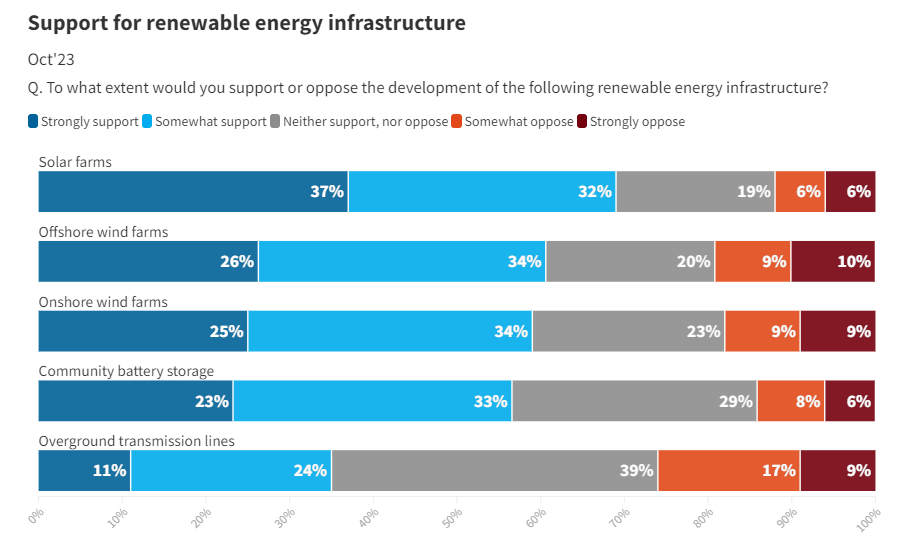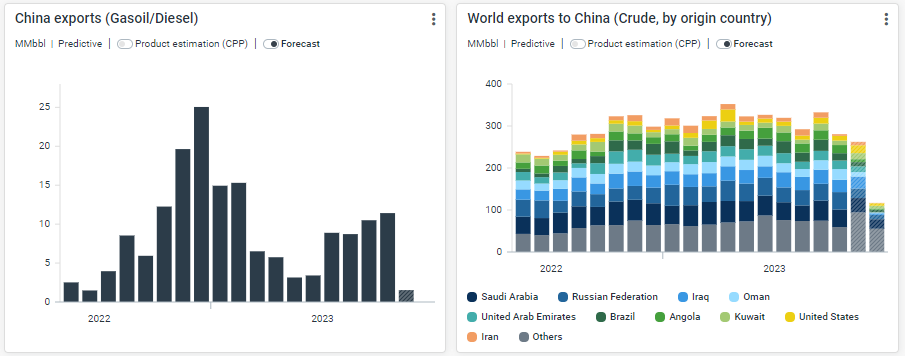4 Nov Weekly Wrap
China’s Growth Model and Protectionism
Michael Pettis pointing out the challenges of China’s push into more manufacturing stimulus and a not dissimilar thread from Adam Wolfe who points out the issues with manufactured goods deflation meaning the “cost disease” implies China’s surplus cannot inflate indefinitely.
I look at this in an applied rather than theoretical complex and I think the example of solar and the recent turmoil in inverter companies I mentioned last week is illustrative here. China can overproduce and induce deflation but at some point volume and market share gains become constrained by either global market size and demand elasticity for the product or retaliatory trade actions. This has happened with solar - China cannot dump into the US for solar panels, but can for solar inverters though I suspect that will run its course in time. Similarly for electric cars Europe is gearing up for retaliation on what is perceived Chinese dumping and given the financials of Polestar that’s not a tough case to make. The problem China now faces is that without a bottomless property bubble to pump it has very few areas it can grow without a trade response aside from domestic decarbonization - which is also happening quickly.
China’s efforts in foundational chips have been picked up by Silverado so now the question in looking for good shorts is - what is China going after next? For good longs the question is: what is priced for China dumping death that is about to feel the warm embrace of protectionism?
Part of China’s credibility problem is that after going after Australia, Lithuania and others it is highly unlikely that any country is going to feel comfortable having a high degree of dependency on China for anything going forward. 40% market share might be ok, 70% will not be ok. This really caps how big China can get in any export category without a radical change in its foreign policy and tone. The problem, as Pettis notes, is then domestic demand but Xi’s recent exhortations for women to spend more time at home barefoot and pregnant are unlikely to work and remind me of South Park.
Climate Politics and Aesthetics
Essential, a pollster in Australia ran an interesting poll on the relative support for decarbonization and different forms of renewable energy and infrastructure. The good news is support for further action on climate is strong and for most forms of energy the support remains strong. The problem in Australia, as in many places is transmission which seems to be deeply unloved.
Wars In the Middle East Are Not What They Once Were for Oil
Oil markets are weak despite everything going on and I think there is a good reason why. China seems to have gorged on stockpiling but has hit some limits and refinery runs for November are reported to be 8.5 million barrels down from 9.5 million in the prior month. To add insult to injury, China’s imports have been weak since mid September when export quotas were surprisingly not increased. China seems to be exporting more diesel - but not as much as last year - and has recently curbed crude imports materially. The apparent strength in commodity imports despite other weak indicators seems to be catching down to reality. As we lap China’s covid lockdown comps of Q4 2022, I expect growth to be much more modest if not perhaps negative from here. With even Indian growth flattish this does not bode well for the new year though the China SPR bid may be jostling with the US SPR bid $10-15 lower.





fwiw i regard exogenous shocks like wars in Ukraine and now Israel as much better indicators of inbound recessions than efforts at macroeconomic sectoral analysis.